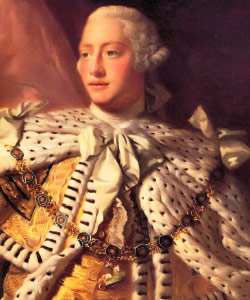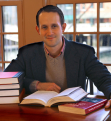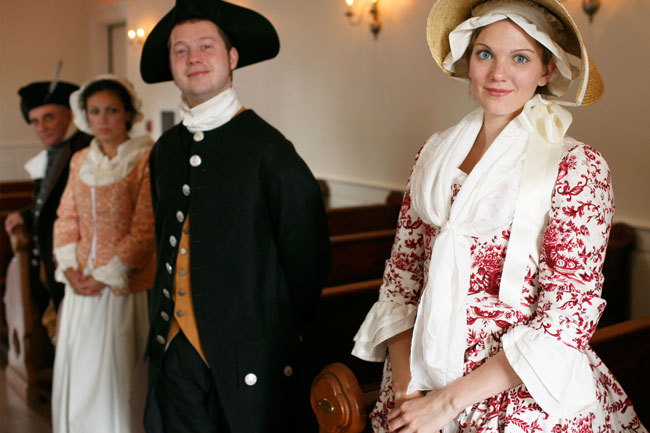In 1785, Adams was assigned to be the first minister from the United States to Great Britain. John was thrilled that he had been selected by Congress for such an important mission. With the retirement of Benjamin Franklin, Adams was now the senior delegate in Europe. While the decision to send Adams on such an important mission had not been unanimous with the members of Congress, John was nevertheless determined to show that he could serve admirably in the role. Perhaps his biggest test came on June 1, when he was scheduled to meet King George III. This was the same bloody tyrant who the Declaration of Independence alleged had “plundered our seas, ravaged our Coasts, burnt our towns, and destroyed the lives of our people.” Indeed, it was the same king who omitted John Adams’ name from the list of pardoned delegates that Admiral Lord Howe held in his possession less than then years before. And now, John Adams was to face this man alone.
Joined by Lord Carmarthen, John took a carriage to St. James’s Palace. Adams was then led through a hallway, where government officials looked on in cold silence, to the formal reception room of the Hanoverian King. Entering the room, Adams approached the King making three bows before he was finally addressed by the British monarch. It seemed like an eternity before the silence was finally broken. “The United States of America,” John Adams started “have appointed me their minister plenipotentiary to Your Majesty.” John continued:




